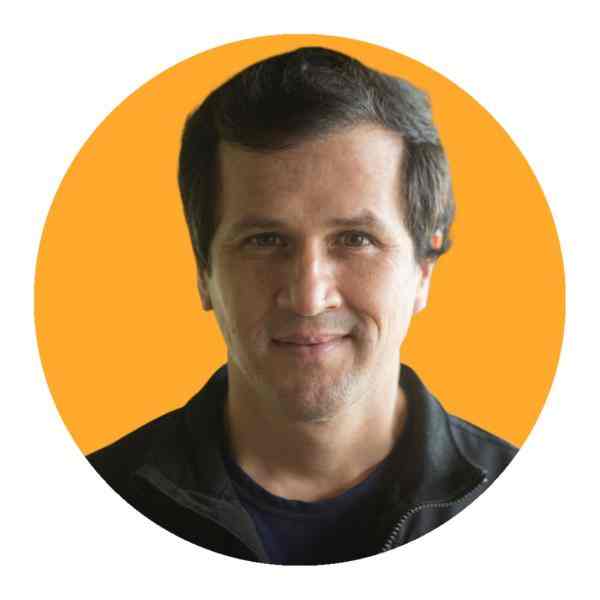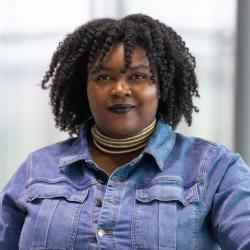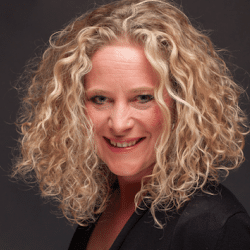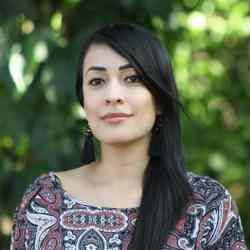Introduction
Juan Diego Calisto and his organization Ruwasunchis, meaning “Let’s Do It Together” in the Quechua language, are breaking the pattern of despair and subsistence living in marginalized communities in Peru. By training community change leaders by feeding them into age-appropriate learning activities from birth to adulthood, Juan creates multipliers of positive values and entrepreneurial skills. In this way, Juan Diego prepares the ground for other allies to enter and for development to take off.
The New Idea
Juan Diego Calisto is starting a citizen movement in the poorest and most marginalized urban communities in Peru. His organization, Ruwasunchis, is based on the four values of community, humility, commitment, and openness to change. Unlike other programs that deal with one or two aspects of marginalized communities, Juan Diego’s approach is comprehensive and starts at the roots. By training community leaders from a very young age, he “raises” them to be changemakers in the community, ultimately receiving the prestigious designation of Tarpuq – “one that plants.” In that way, the very DNA of the community is changing as the Tarpuq become role models and multipliers of the skills and values they have learned.
The Ruwasunchis model works with each age group, offering age-appropriate workshops in the realms of personal, professional, and family life. Running throughout all workshops is an emphasis on overcoming the many barriers in the community, as well as creativity. While most community development projects focus on the effects of poverty, Juan Diego’s model works to prevent it, seeding new habits and integrating them closely with families. By working with all family members (and ages) on a Personal Development Plan (PCP), he meets community members where they are, but involves them continuously in the process of iteration. From the womb to old age, the Ruwasunchi activities develop both values and skills, while also generating income.
All along, Juan Diego’s model treats the community residents as change agents, capable of improving their own situation and training others to do the same. By strengthening social fabric, Ruwashunchi is making it easier for external allies to help. Volunteers, businesses, and other partners join in to support the communities, providing channels to push change forward. In this way, Ruwashunchi is institutionalizing the formation of new role models, and accelerating change by setting a baseline of activated citizens to attract and engage other allies.
The Problem
In the marginalized urban communities in Peru and across Latin America, residents face a lack of opportunities for work and study as well as nonexistent or deteriorating infrastructure and public services. Meanwhile, domestic violence and gang activity threaten the lives and livelihoods of many. Children follow the example of young adults and adults, and without many positive outlets for sport, art, or other creative activities, the negative cycle continues and they model the bad behavior of their elders.
The education and labor systems in these communities do not emphasize creative or entrepreneurial endeavors, and the opportunity for professional or specialized work is rare. For example, in Manchay, an informal settlement on the outskirts of Lima, 30 percent of adults are construction workers. Women in particular are excluded from income generating opportunities, making it difficult for them to feed their children or send them to school. In some cases, children are expected to contribute to the family income from a very young age. Furthermore, remnants of the political violence from the 1980’s are still present, whether expressed through domestic violence or in organized gang activities.
With regards to women, the statistics in Peru are alarming. 76 percent of those illiterate are women; income for women is 35 percent less than men; and 94 percent of victims of sexual violence are women (77 percent of these under the age of 18). Children are equally vulnerable, experiencing violence at home, or being raised by single mothers.
The Strategy
Juan Diego founded Ruwasunchis in 2009, and as director, he works full time alongside a staff of three. He is in charge of fundraising, supervising all projects, and overseeing the side-arm social business, Ayllu Ruwasunchis, which he created to offer sustainable funding for a Ruwasunchis and act as a channel to market his community products. Juan Diego works in in vulnerable urban communities, such as San Pablo Mirador in Manchay, a squatter settlement outside of Lima where his idea first began.
Ruwasunchis identifies, strengthens, and places value on the change agents inside these communities. To do end, Juan Diego developed a series of steps called the Ruwasunchis Training Method. First, he forms contacts in a community. Then, he creates a library where he begins carrying out a Personal Development Plan for youth and adults from the community who volunteer. In this process, those volunteers then begin training as Tarpuq leaders, who show commitment to their community and will develop creative, entrepreneurial, and technical skills from the program. The Tarpuq also train in the four Ruwasunchis values: community, humility, commitment, and openness to change. The development plan designates leaders according to three levels of growth: 1) Wayqey/Panay (brother/sister), or someone who has just been initiated in the program; 2) Qhari/Warmi (man/woman), someone who has acquired creative, entrepreneurial, and technical skills; and 3) Turpuq, someone who has achieved maximum personal growth.
In this way, Ruwasunchis creates the basis for community sustainability as it develops a citizen movement. The training method has four steps. The first, identification, calls people of all ages who excel in specific disciplines or abilities. The second, strengthening, trains and empowers people to become community references and local leaders (Tarpuq). The third, assessment, connects Tarpuq to a national network of citizens so they can access better job opportunities and scholarships. Last, sustainability, facilitates the participation of Tarpuq volunteers, businesses, civil society organization, and the government to contribute resources so that everyone wins.
Ruwasunchis Training Programs are divided into age-appropriate initiatives, but they begin while children are still in the mothers’ womb. Before and just after birth, mothers attend Growing in Harmony (0-2 years) workshops for Creative Pregnancy and then after birth, bring their babies to Early Stimulation classes. Creative Kids (3-14 years) reinforces the learning and development of skills and values, such as empathy, with fun art workshops, English classes, sports, and cultureal activities, among others. The teenager goes to Young Citizens (14-21 years) to participate in Creative Platform workshops, where they exercise creativity, teamwork, innovation, planning and management skills, interpersonal communication and assertive failure management. Or, they might attend Youth Movement workshops on street soccer, Hip Hop, or Capoeira to reinforce values such as teamwork, companionship, respect, self-esteem, and stress management. Notably, a national street soccer league will start in 2015, positioning the project to be picked up by the state and offered in public education in vulnerable areas. Yet another option offered to youth is the Sowing Dreams project, a scholarship program in technical careers for young Tarpuq. For adults and older youth, Urban Adult Weavers (16 and over) is aimed at developing skills to bring in income and support a family. Weaving workshops are complimented by courses in business management, life skills, and developing quality products. The Tarpuq weavers and their children have the benefit of accessing Ruwasunchis workshops, counseling services, home gardens and scholarships.
Juan Diego tells of Clara, a 17 year-old that he has now known for eight years. She began in a Fashion Design course but had to leave because of problems at home. Given her complicated situation, she had assumed adult responsibilities since she was very young. When she dropped out of class, Ruwasunchis was able to support her with coaching and therapy, and she has since retaken up her studies with a web programming and Capoeira workshop. Clara volunteers on the weekends to help with workshops with children and is a positive role model within her community. Her training is very rare in places like Manchay, where very few young people are trained technically and professionally.
To ensure the sustainability of the Training Methodology, Juan Diego founded the social enterprise Ayllu Ruwasunchis in 2013 as on outlet for various opportunities for those in Ruwasunchi training programs. Ayllu connects the products of weavers to market, and reinvests all proceeds in the training programs. To date, 30 weavers have benefited from $24,000 (USD) in scholarships for their children and families. Scholarships are also awarded to Tarpuq to specialize in areas of interest such as food preparation or hairdressing.
To ensure that the Ruwasunchis training is comprehensive and extends beyond the “classroom,” Juan Diego works in four cross-cutting strategies. His Nutrition program educates mothers about proper nutrition for their families and ensures that children are nourished. His Environment program empowers youth in environmental care and implements home gardens with a “Green Advocates” activity that raises awareness about environmental issues (in partnership with Ashoka Fellow Joaquín Leguia of ANIA organization). The Integral Development program supports children, youth, volunteers, and workers to obtain counseling from psychologists. A program centered around Creativity develops this skill and entrepreneurialism necessary to progress through all workshops.
Today, Juan Diego works with 250 community members (120 women, 100 youth, and 30 weavers), which when added to the 150 volunteers, totals to 400 agents of change. Juan Diego is developing an evaluation tool to assess the level of development of entrepreneurial, creative, and empathic (emotional and social) skills, as well as to measure academic achievement of those in the training programs. For 2015, Juan Diego has plans to spread to 3 more communities and reach 820 change leaders. In 2016, he plans to spread to 4 other departments of Peru, and in the long-term, he expects to have Tarpuqs in every province in the country.
His allies are diverse and include other CSOs, private companies, and the government, and he groups partners into different categories. Corporate Partners are not only a source of funding, but they are also charged with organizing activities and volunteers for the Ruwasunchis communities. In this way, they connect in important ways with the local change agents. In turn, Ruwasunchis offers them social workshops, facilitated by a member of the Ruwasunchis team and a young Turpaq in training. Oranganizational Allies are primarily social organizations that increase the impact of Ruwasunchis work. ANIA and D1 School (linked to Hip Hop and dance) are two examples of these kinds of partners, both of which have Ashoka Fellows as founders (Joaquín Legui'a and Vania Masías). Replicators are those interested in replicating the Ruwasunchis Training method in other communities. Business Friends bring specific materials or provide spaces for the sale of Ruwasunchis weavers’ products. International Technical Cooperation or International Foundations are allies in specific projects or activities. For example, LAFF UK gave economic support for the family gardens and the Ayllu Ruwasunchis website. Tierra de Hombres (TDH) helped with travel expenses for the Manchay street football team that traveled to the Street Soccer World Cup in Brazil. Ruwasunchis is a member of several Networks, both national and international, such as the Work Network (Red Obra), for organizations that engage youth; UN Volunteers; and the Movement Street Football Movement, whose founder Fabáan Ferraro is an Ashoka Fellow. Partners for Personal Growth Plan (PCP) are organizations specialized in theater, clown, theatrical improvisation, body language, play and imagination, participatory and dynamic coaching that assists Ruwasunchis with creative workshops. And finally, Local and central government participates in joint activities with Ruwusunchis to offer increased development support.
The Person
Juan Diego's motivation is to enable people to achieve their dreams. He is grateful for his own life story, which has allowed him to influence people and support them in reaching their potential. Juan Diego studied at a private school and comes from a wealthy family who abruptly suffered an economic crisis. For a period, there was no money to pay for Juan Diego’s education, and his mother had to borrow money on more than one occasion to keep him in school. During school, he was chosen for the soccer team, and played in the minor league and then on a club team throughout his high school years. His father’s drinking problems eventually led to his parents’ separation. Afterwards, Juan Diego’s mother began looking for work at age 40, which was difficult for her to find and adjust to. Meanwhile, Juan Diego studied at a pre-agrarian program, paid by his grandmother, and was able to enter the National Agrarian University, La Molina. Although Juan Diego was not born in a rural community or a low income settlement, he experienced problems similar to those that such communities face. This led him to want to contribute to his country by solving related social issues.
At university, Juan Diego started volunteered teaching English courses, theater, poetry and cooking in a school for children with physical disabilities. At age 21, he went to the informal squatter settlement called Mirador de San Pablo Manchay. After talking with the leaders and teachers there, he began leading painting and soccer classes. Gradually, his friends began to accompany him to deliver the workshops. In 2008, after graduating, Juan Diego went to work for a year in the department of Ancash, where he helped amaranth and wheat producers from rural communities reach market. In 2009, he moved to Cuzco and worked in community tourism and then to moved Lima to explore work in varios CSOs and social businesses. During this time, he dedicated nights and weekends to developing his own idea, which he called Ruwasunchis since 2009. This idea, he hoped, would bring opportunities for personal and professional development for thousands.
In 2012, he was chosen as a “Global Shaper” by the World Economic Forum, and in 2013, he founded Ayllu Ruwasunchis as a social brand that offered a market to artisan weavers from vulnerable communities. This year, Juan Diego was the only man awarded the Spotlight Award from the United Cooperation for Women in Peru, recognizing him as a social entrepreneur empowering women. Juan Diego is dedicated to empowering young people to increase their social, academic, and entrepreneurial skills and become leaders in shaping change in their communities, and in society at large.




